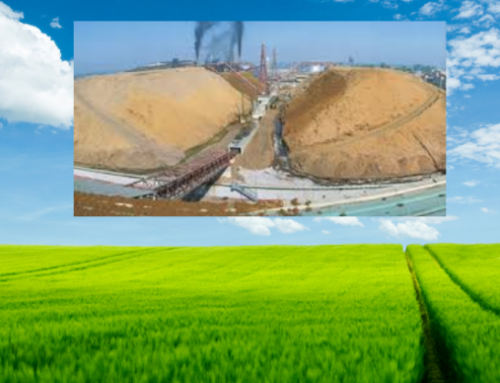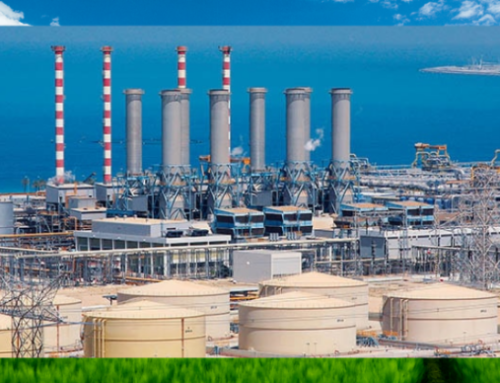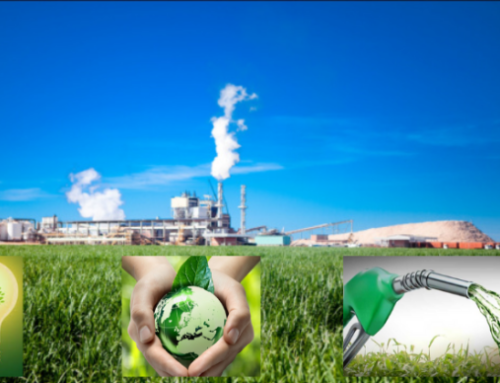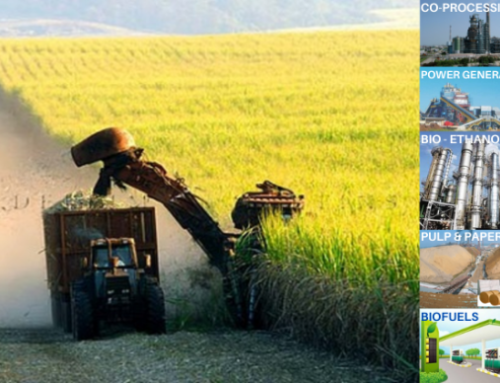Ivo Fouto (ivofouto@cenerbio.com) – July 14, 2020
Introductory article: https://cenerbio.com/green-and-sustainable-economic-recovery-after-covid-19-pandemic-alternatives-for-brazil-and-tropical-regions
Part 3: https://cenerbio.com/green-and-sustainable-economic-recovery-after-covid-19-pandemic-part-3
Part 4: https://cenerbio.com/green-and-sustainable-economic-recovery-after-covid-19-pandemic-part-4
5. Biomass Gasification and Synthesis (BTL / FT – Fischer-Tropsch):
Gasification and fuel synthesis processes are already well-developed and well-known industrial processes in use especially in South Africa (Sasol) and more recently in China. Currently, the main raw material in these operations is Coal (Coal to Liquids – CTL).
The use of biomass as a source of raw material in gasification processes is possible and has already been technically proven. There are industrial processing alternatives for the combined use of Coal and Biomass (CTL – BTL).
The barrier to making this renewable Biofuel production route viable, using biomass, is related to the high cost and low homogeneity of the biomass sources evaluated so far (agricultural and/or forest residues, mainly by subtropical countries), in addition to the inefficiencies and lack of supply availability in large volumes throughout the year.
This technological route, with its energy security component, has always attracted interest, from several fuel and petrochemical industries, as well as from the armed forces of several countries.
The large volumes potentially produced, in a renewable and sustainable manner, and especially the operation flexibility, have aroused great attention and interest in cases of crude-oil supply interruption, under conflict conditions.
This type of industrial application can possibly be used not only for military purposes but also for commercial applications. The combined use of Biomass with low-quality Coal (high ash), in which the Potassium present in the Energy Cane Biomass acts as a reducer of the ash melting point, allows the use of low-quality coal from the most diverse sources.
In Europe, TOTAL is leading the BioTfuel project in association with strategic partners, to develop an end-to-end set of processes for producing second-generation Biodiesel, and Biojet fuel.
Companies in Brazil and abroad, especially in the mining area, have already developed specific studies/projects to use tailings from Coal mines for fuel production, independently or associated with a renewable biomass component from Energy Cane (Biofuel).
The strategy of these projects is to add value to coal mining residues, reducing environmental problems, and meeting local operation energy and fuel consumption, including Ethanol from Energy Cane’s fermentable sugars.
Also, in these projects, there would be the commercialization/exportation of a large surplus of fuels and Naphtha, with a premium in the commercialization value due to the proportional component of renewable Biofuel.
The Syngas (CO + H2) generated from Gasification can produce, not only fuels and Naphtha, but also several other petrochemical products in existing synthesis routes.
The barrier to making these other petrochemical routes of renewable and sustainable sources viable is the lack of reliable, abundant, homogeneous, perennial sources, and the low cost of Biomass to meet specific project requirements.
Here again, Energy Cane Biomass aggregates all the advantages and benefits as a competitive source of sustainable, abundant, perennial, and low-cost raw material.
Considering the defined and well known industrial processing, the key economic factor for its success is in the biomass supply chain with an associated low cost, homogeneity, abundance, and availability, in a sustainable and competitive manner.
Considering the various variables involved, it is evident the need for a detailed and in-depth technical/financial study for an adequate investment decision making.
6. Conclusions:
Regardless of ideological positions or scientific evidence about global warming, its causes, and consequences, under any circumstances, Brazil and many other Tropical Countries have potential and capacity to lead the world in the Green and Sustainable Economic Recovery after COVID-19 Pandemic through an integration of mineral abundance, food agriculture, animal protein and biomass, all locally processed, using advanced industrial technologies with renewable, sustainable and competitive Bioenergy, Biofuels and Biorefinery.
Under these conditions, Brazil is still one step ahead of other Tropical countries and naturally meets all the requirements to match this new global scenario, with potential to attract quality investments under ESG (Environmental, Social, and Governance) and PRI (UN Principles for Responsible Investment), as well as to fulfill and supplant the commitments assumed by the country’s NDC in the Paris Agreement (UNFCCC).
Asian countries are excellent examples of success, with the generation of prosperity, employment, and development through the appropriate technological application in industrial processing, adding substantial value to simple and low-cost commodities.
As an example of industrial integration and technology, South Korea is the world leader in steel production not in volume, but in value and quality, by an integration of the manufactured production chain.
Considering that South Korea does not have the basic and essential raw materials for steel production (Iron Ore and Steel Coal), the country manages to locally add high value to the imported required commodities.
The 2019 report by the World Steel Association AISBL, indicated South Korean’s per capita production of steel finished products to be at an impressive first place with 1,047.2 kg, with the world average being 224.5 kg.
For comparative effects, China and the USA have an average of 590.1 kg and of 306.5 kg respectively, but Brazil has a decreasing average of 100.0 kg even though the country has the largest and highest quality of iron ore reserves in the world.
Pyrolysis Oil (PYOIL) from biomass source is an excellent example that can set Brazil as a center for large-scale production of renewable biofuels, integrated with petroleum refineries (Co-Processing), meeting global sustainability demands, for the development and long-term generation of prosperity, ensuring national energy security.
In the short term, a wide distributed electricity generation strategy could be implemented, with an additional Ethanol production, and integrated to the National Integrated System (SIN), guaranteeing energy self-sufficiency and independence, mainly on the northern border, as well as creating permanent jobs and income. This model could be easily implemented in many other tropical countries, in a decentralized distributed energy and biofuels model.
Brazil, with its abundant mineral and energy reserves and unbeatable agricultural aptitude, needs to change its current position as a mere explorer and exporter of commodities of low commercial value, which does not add the prosperity, employment and development so necessary to the country, both now and in the future.
To maintain the Brazilian national sovereignty, especially in the North (Amazon) region, with its mineral and natural prosperity and resources, it is essential to have control and implement sustainable and renewable technologies for Bioenergy and Biofuels to explore, operate and benefit, especially from the minerals and other products present there, in a sustainable manner.
The energy and fuels needed for exploration in new mineral frontiers must be sustainable and produced locally, with renewable and sustainable resources.
This new prosperity to be explored should generate permanent and sustainable employment, in addition to promoting the integration of local societies around the new projects.
The control and mastery of these technologies should be part of a solid national energy security strategy, and a positive and constructive regional influence not only in Latin America, but also for other great tropical frontiers, with vast, still unexplored, natural and mineral resources, located in the different Latin America, Asia, and sub-Saharan Africa countries.
Global Pulp & Paper industry in tropical regions could expand and improve its life cycle (sustainability) with cost reduction, by the integration of biomass production and final processing, in addition to the production and integration of new products (Biorefinery) and biofuels.
Given all that is known and has been evaluated about Energy Crops, Energy Cane also stands out in a competitive and sustainable manner, both as a source of pulp and as a source of clean and renewable energy.
In addition to Mercosul, Brazil should consider in a near future a strong integration with the African continent and its plans to create the CFTA (Continental Free Trade Area), a gigantic free trade market with a GDP of US$ 3.4 trillion and more than 1 billion people, with comparable growing requirements of food, energy, technology, and development.
Addressing strategic security issues in the 21st century comprehensively includes food and energy security, as top priority issues. These topics are already being carried out systematically for both public and private strategic sectors in several countries.
Brazil will be able to build a positive and constructive regional influence beyond its borders, with the necessary technological mastery and control of its strategic natural resources.
This will also guarantee its long-term sustainable development and guarantee its national sovereignty, in its vast and still unexplored territory.
Sustainable development in Brazil, more than an obligation, is a natural characteristic that the tropical edaphoclimatic conditions, vast subsoil richness, vast and abundant water resources, and extensive territorial sea; confer to this great tropical nation.
The alternatives for industrial biomass processing are already defined, available, and well known.
Thus, the main economic factor of success in Biofuels, Bioenergy and Bio-Materials projects is in the biomass supply and logistic chain, with the associated low cost, homogeneity, abundance, and availability, in a sustainable and competitive manner.
Energy Cane is a proven source of Biomass that serves and enables the most diverse projects, in addition to generating prosperity and jobs in a sustainable and long-term way.
Considering the several variables involved, it is evident the need for detailed, in-depth technical/financial studies on the most appropriate investment decision-making, but it is strongly demonstrated that Brazil and many other Tropical Countries possesses all the necessary natural characteristics, associated with the legal and regulatory framework, to attract quality investments under ESG and PRI standards, for implementing sustainable and renewable industrial and infrastructure projects, generating prosperity and permanent jobs.
Disclaimer:
This presentation is being delivered by Cenerbio, regarding existing assets, technologies, and projects under negotiation.
The information contained on this presentation is not intended to and does not constitute an offer, solicitation, inducement, invitation or commitment to purchase, subscribe to, provide or sell any securities, service or product, or to provide any recommendations on which a party should rely for financial, securities, investment or other advice or to take any decision based on such information.
This presentation does not purport to contain all of the information that may be required to evaluate all of the factors which would be relevant to a recipient considering entering into any transaction, and any recipient hereof should conduct its own investigation and further analysis. The recipient must conduct its own complete due diligence at its sole responsibility.


















Leave A Comment